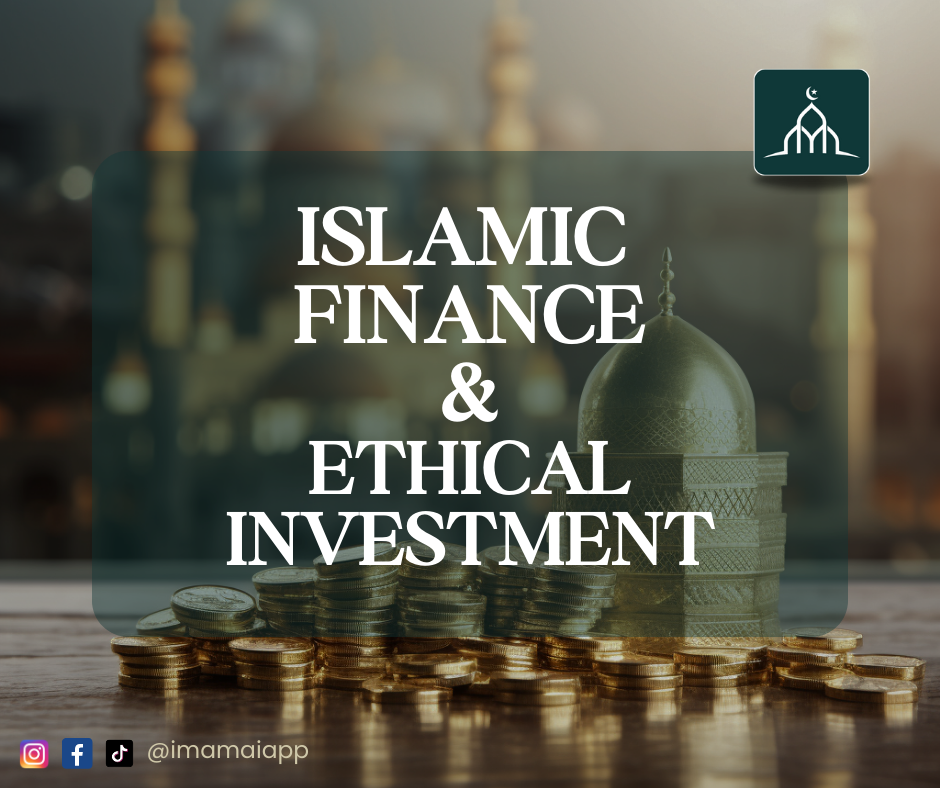Islamic Finance and Ethical Investment
In a world driven by financial complexities, the principles of Islamic finance offer a unique and ethical perspective on managing wealth. Rooted in Quranic teachings and the traditions of Prophet Muhammad (peace be upon him), Islamic finance emphasizes justice, fairness, and compassion. Let's embark on a journey to understand the essence of interest-free banking and ethical investment through the lens of Islamic principles.
The Prohibition of Riba (Usury/Interest):
The Quran unequivocally condemns the charging of interest, or Riba, as an exploitative practice detrimental to societal harmony. As stated in Surah Al-Baqarah (2:275), "Those who consume interest cannot stand [on the Day of Resurrection] except as one stands who is being beaten by Satan into insanity."
This verse underscores the severity of engaging in usurious practices, highlighting its corrosive impact on individuals and society. Islamic finance, therefore, promotes interest-free banking to foster economic justice and shield individuals from the burdens of debt.
Quotes from Prophet Muhammad (PBUH):
Prophet Muhammad (peace be upon him) further emphasized the ethical dimensions of financial transactions. His sayings, or Hadiths, shed light on the importance of honesty, transparency, and fairness in all dealings, including financial matters.
"The buyer and the seller have the option of canceling or confirming the bargain unless they separate, and if they spoke the truth and made clear the defects of the goods, then they would be blessed in their bargain, and if they told lies and hid some facts, their bargain would be deprived of Allah's blessings." (Sahih Bukhari)
These profound words guide believers towards ethical conduct in trade and transactions, emphasizing the significance of honesty and disclosure.
Ethical Investment and Social Responsibility:
Islamic finance not only focuses on interest-free transactions but also encourages ethical investments that align with Islamic values. Investments should avoid businesses involved in activities such as gambling, alcohol, and other prohibited substances. The Quran urges believers to "Help one another in righteousness and piety, but do not help one another in sin and transgression." (Surah Al-Ma'idah, 5:2)
This principle extends to environmental sustainability and social responsibility. Islamic investments should contribute positively to society, reflecting the broader concept of Ma'ruf (what is known to be good).
Islamic Micro Finance:
In addition to interest-free banking, Islamic micro finance is a powerful tool for poverty alleviation and community empowerment. The Quran emphasizes charity and helping those in need, and micro finance initiatives rooted in Islamic principles aim to uplift marginalized communities without burdening them with debt.
"And those in whose wealth there is a recognized right for the needy and the poor." (Surah Al-Ma'arij, 70:24-25)
This verse highlights the obligation to allocate a portion of wealth to those in need, promoting social equity and compassion.
Conclusion:
Islamic finance, with its emphasis on interest-free banking and ethical investment, provides a framework for building a just and compassionate financial system. It aligns with the values enshrined in the Quran and exemplified by the life of Prophet Muhammad (peace be upon him). By embracing these principles, we can contribute to a world where wealth is not only a means of personal success but also a tool for positive change and societal well-being. Let us strive to harmonize our financial endeavors with the ethical teachings of Islam, creating a world where prosperity is shared, and compassion prevails.

